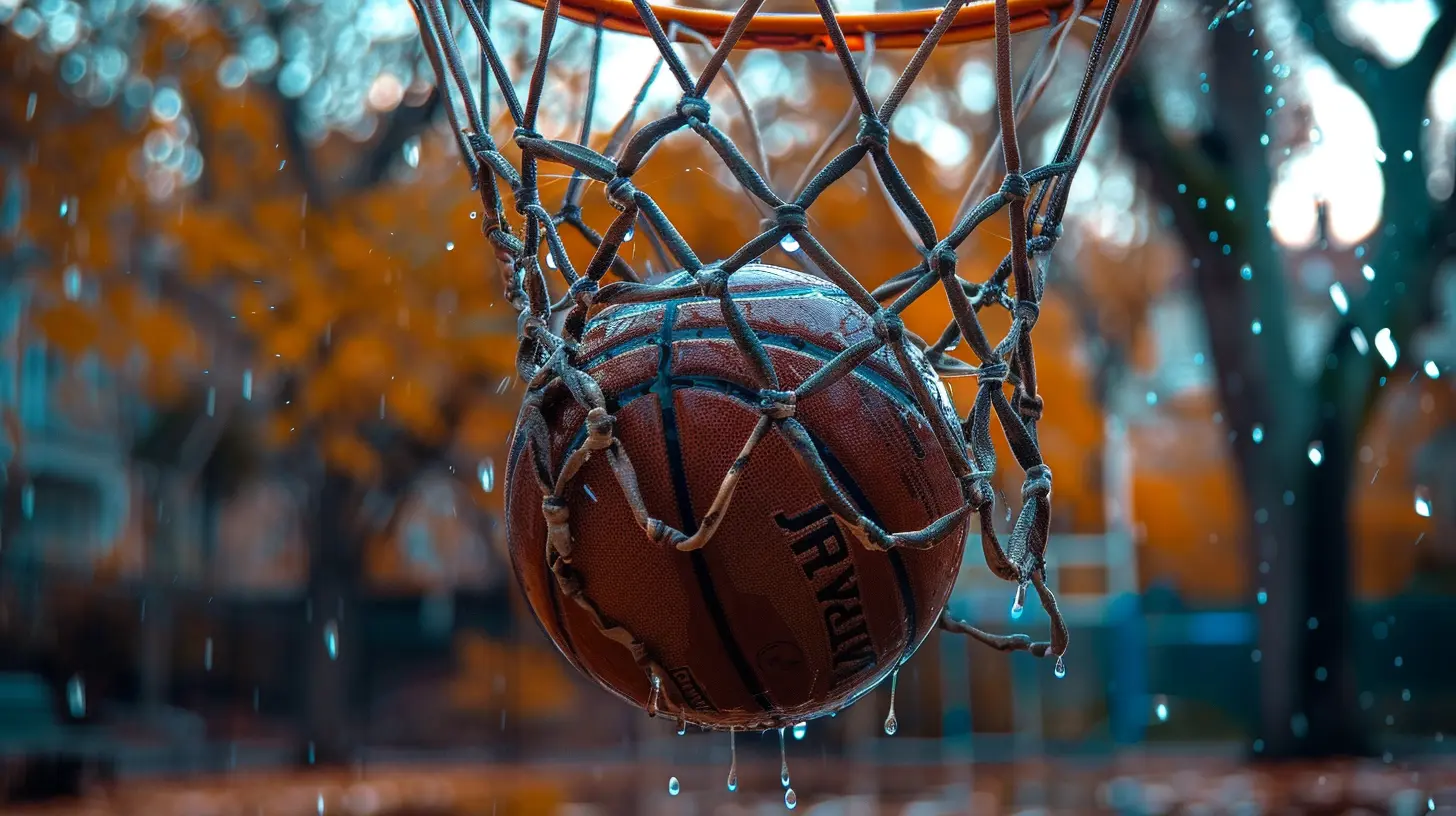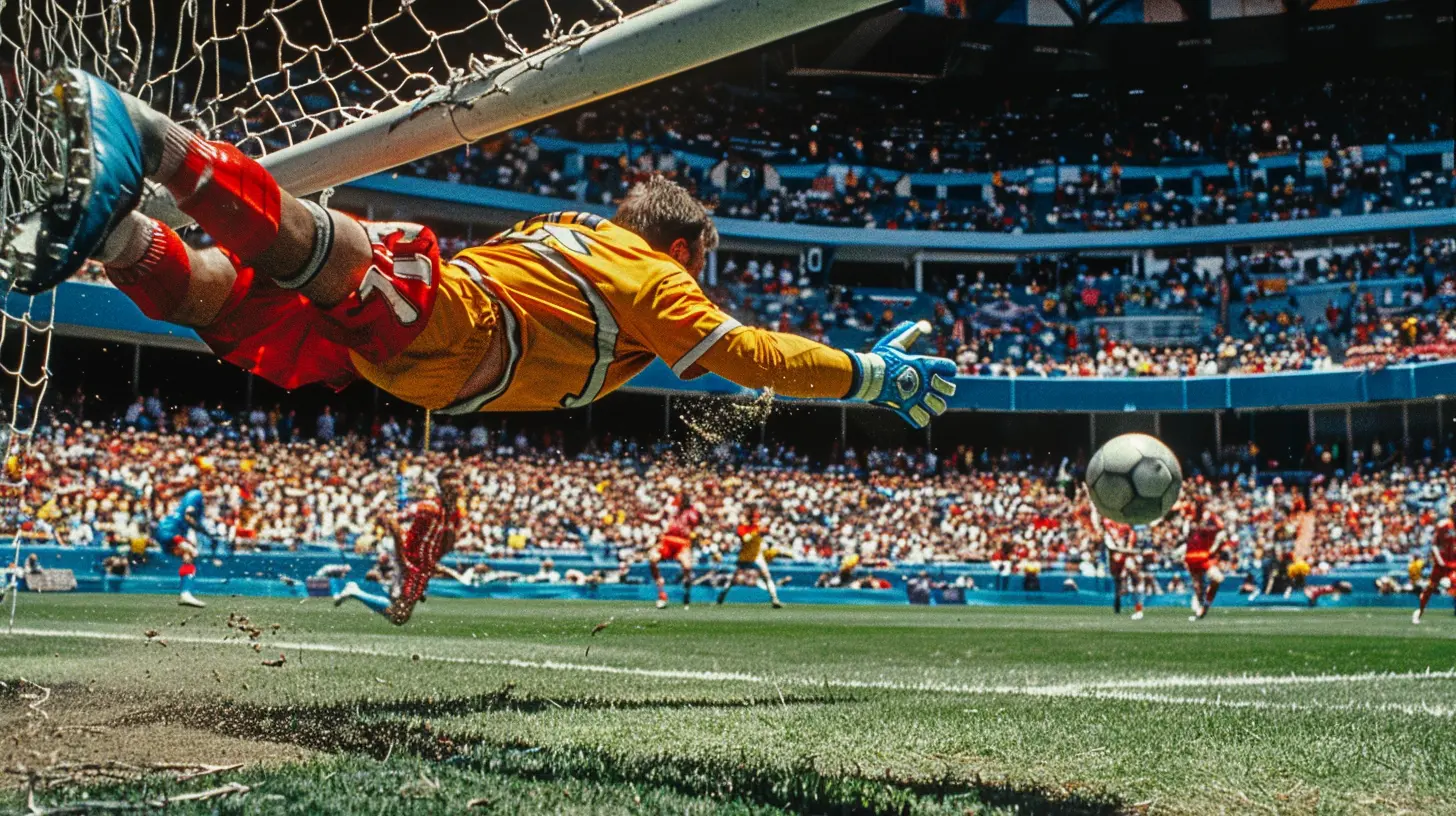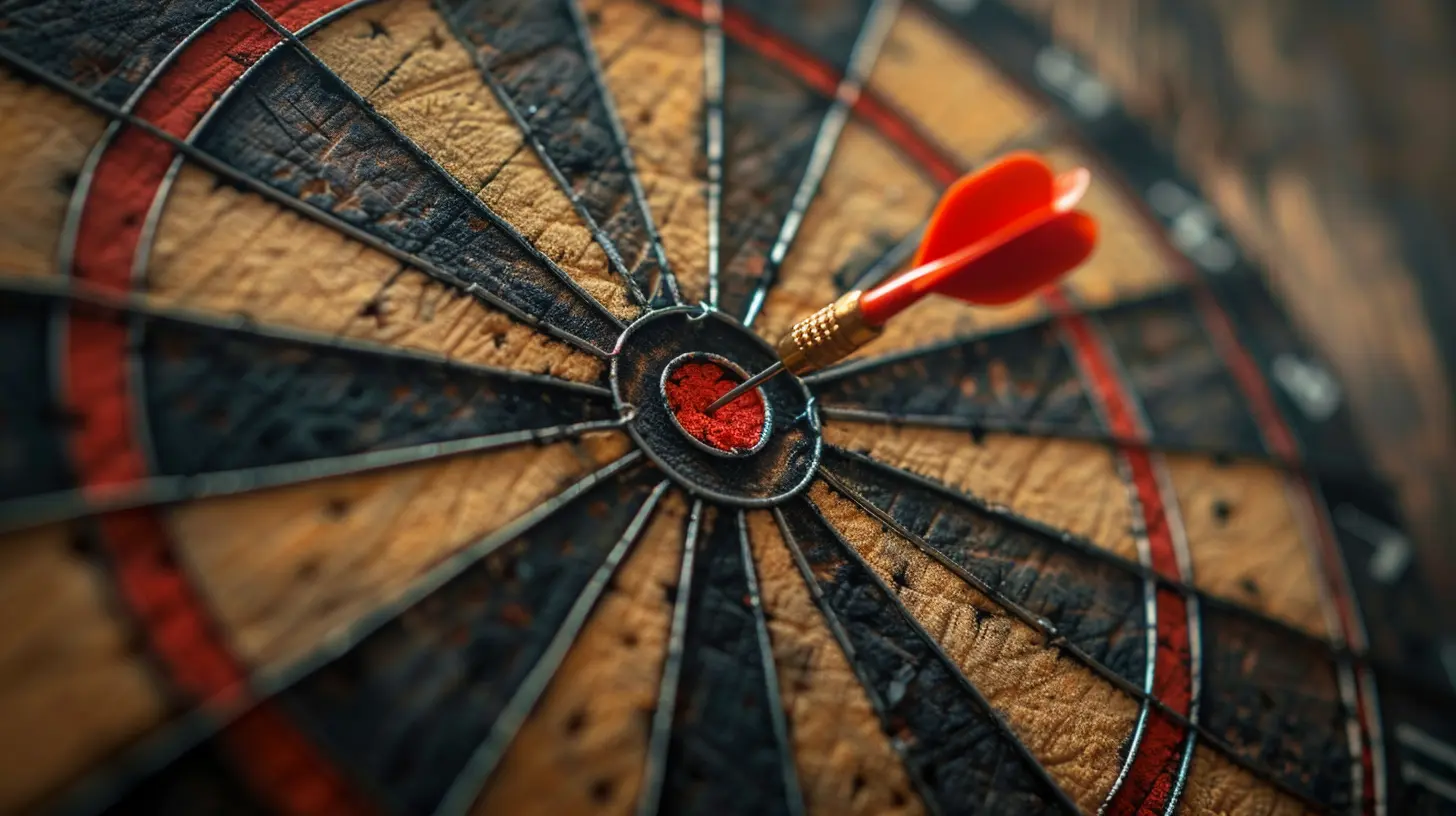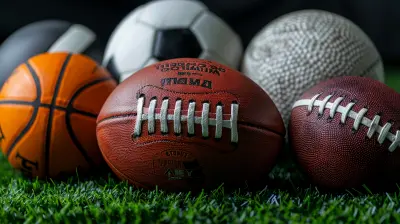How to Improve Your Scoring Skills in Any Sport
18 August 2025
Let’s face it — scoring is the name of the game. Whether you’re dribbling down the basketball court, sprinting down the soccer pitch, smashing a volleyball, or lining up a golf shot, putting points on the board is what gets people cheering and gives you that sweet, sweet feeling of victory.
But here’s the kicker — no matter what sport you play, scoring doesn’t just happen by magic. It’s a craft. One that needs precision, repetition, and a whole lot of hustle. If you've ever shouted, "Why can't I just finish more plays?!" you're not alone. The good news? You can get better. A lot better.
In this guide, we're diving deep into how to improve your scoring skills in any sport. Buckle up. Whether you're a casual player or chasing greatness, you're about to unlock your inner MVP.
🧠 Step 1: Change Your Mindset – Score Like You Mean It
Scoring starts in the mind. Think about elite athletes—Cristiano Ronaldo, LeBron James, Serena Williams. Do they step on the field or court unsure of their ability to score? Nope. They believe they will. That confidence isn't cockiness—it's preparation meeting opportunity.You’ve got to visualize the win. Picture the ball soaring through the net, the puck hitting the top shelf, or the clean swing that earns you a birdie.
Start by asking yourself:
- Do I hesitate in pressure moments?
- Am I afraid of missing or messing up?
- Do I trust my instincts during games?
If there’s any doubt, work on your mental game. Visualization, positive self-talk, and breathing exercises can calm the nerves and help you lock in. Scoring is as much a mental war as it is physical.
🏃♂️ Step 2: Master the Basics First — Fundamentals Are Everything
You can’t be fancy if you’re still struggling with the basics.Whatever your sport, scoring usually comes down to a few key fundamentals:
- Proper footwork
- Consistent technique
- Good hand-eye coordination
- Timing and balance
Don’t skip this. Work on your core mechanics every single day. Michael Jordan took thousands of basic jump shots in practice. Lionel Messi repped the same dribble and finish over and over. Great scorers are great at simple things.
Training Tip: Record yourself during practice. Watching yourself helps you spot habits you didn’t know you had.
🧩 Step 3: Understand the Game — Know Where, When, and How to Score
Scoring isn't just about strength or speed — it's about intelligence. You need to know how to read the game.Think about it — the best scorers in any sport are often the smartest players on the field. They know:
- Where to be at the right moment
- When defenders are out of position
- How to exploit weaknesses
Study game footage. Watch the top scorers in your sport and ask:
- Where do they position themselves?
- What moves do they repeat?
- How do they react under pressure?
You'll often find that positioning and smart decision-making lead to easier scoring chances. You don’t need to take tough shots if you can create open ones.
🏋️ Step 4: Train for Power and Precision
Now let’s talk physical tools—because all the smarts won’t help if you can’t deliver under pressure.To score, you need:
- Explosive strength (for sprinting, jumping, hitting, or shooting)
- Core stability (for balance and control)
- Fine motor control (for accuracy and touch)
In plain English? You need to be strong and accurate.
Here’s the formula:
- Lift weights with focus on legs, core, and shoulders (think squats, deadlifts, lunges, and push presses)
- Do plyometrics to build explosive power (box jumps, sprints, medicine ball slams)
- Practice your scoring motion slowly and perfectly, then speed it up
Remember, power is only useful when you can control it.
🧪 Step 5: Practice Like You Play
Repetition is your best friend. But not just any repetition—game-like repetition.It’s not enough to shoot 100 free throws if you do it with no pressure, no fatigue, and no defenders. That’s why great practice looks messy. You're supposed to miss sometimes.
Here’s how to make practice count:
- Add defenders or obstacles
- Work under timed conditions
- Practice while tired
Simulate game-day chaos. Ever tried to shoot after running sprints? Totally different ballgame, right? That’s the point.
Tip: Keep score in training. Compete with teammates or track your results. It builds that clutch-scoring killer instinct.
🧠💨 Step 6: Make Faster Decisions Under Pressure
Scoring windows are tiny. Blink, and they're gone. Want to be great? You need to make decisions in milliseconds.Great scorers don’t just react—they anticipate. They know how defenders move and when a pass or shot lane will open.
Train your decision speed with:
- Small-sided games (force quicker choices)
- Video breakdowns (what could you have done?)
- Pattern recognition (learn to spot setups and cues)
Give yourself permission to fail fast. The quicker you try, the quicker you learn what works.
🔁 Step 7: Build a Signature Move (or Two)
You don’t need a million tricks. You just need one or two that no one can stop.Think about it:
- James Harden’s step-back
- Federer’s forehand
- Messi’s left foot cut-in
They have “go-to” weapons. You should too.
Ask yourself:
- What type of scoring action feels most natural to me?
- What move works best against different types of defenses?
- What’s a counter move I can use when defenders read me?
Work on it until it’s automatic. This is your bread and butter. Defenders might know it’s coming, but they still can’t stop it. That’s when you know you’ve nailed it.
👥 Step 8: Trust Your Teammates — Scoring Is a Team Effort
Even if you're aiming to be the top scorer, don’t get tunnel vision. The best scorers know when to pass, when to move off-ball, and how to create space by pulling defenders.Crazy idea? The more you involve your teammates, the easier it becomes for you to score. Defenders stop zeroing in on just you. That’s how you get open.
Play unselfishly, but always be ready to finish when your moment comes.
🔄 Step 9: Analyze and Adjust Constantly
Ever felt stuck in a scoring slump? Join the club.When that happens, don’t panic. Analyze.
Look at:
- Shot or attack selection (am I forcing it?)
- Positioning (am I in scoring spots?)
- Execution (am I rushing?)
Then adjust. Maybe it’s small — a tighter follow-through or a smarter run. Maybe you need to watch more film or shake up your practice routine.
Great players don’t stay cold for long because they always adapt.
🍔 Step 10: Rest, Recover, and Fuel Up
Last but definitely not least — your body needs to recover to perform. No one scores well on empty tanks or tired legs.Keep it simple:
- Sleep 7–9 hours a night
- Hydrate like it’s your job
- Fuel with proper carbs, protein, and fat
- Take rest days seriously
Scoring is about energy bursts at critical moments. If you’re drained, those moments pass you by.
Final Words: Everyone Can Be a Scorer
Look, not everyone is going to lead their league in points. But everyone — yes, everyone — can become a better scorer.It’s not about flashy skills or raw talent. It’s about mindset, consistency, and smart training.
So whether you hoop, swing, kick, skate, or spike — your scoring breakthrough is right around the corner. Practice with purpose, play with confidence, and finish strong.
Because once you learn how to score, you don't just change games. You change how you see yourself.
Now go out there and light it up!
all images in this post were generated using AI tools
Category:
ScoringAuthor:

Preston Wilkins
Discussion
rate this article
1 comments
Renee McBride
Great tips! Practicing consistently and staying positive really makes a difference in boosting scoring skills. Keep it up!
September 5, 2025 at 4:49 AM

Preston Wilkins
Thank you! I'm glad you found the tips helpful. Consistency and a positive mindset are indeed key!


